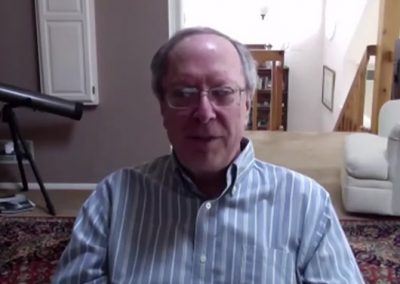Let’s Move On! Transitioning to Pragmatic Applications of Anomalies
by Bill Bengston
Introduction: In this talk I take a wide perspective look at the potential benefits of developing practical applications of scientific anomalies. The traditional approach to scholarly activities has emphasized the gathering of rigorous data and the development of theoretical models to explain those data.
I take no issue with those traditional emphases, but suggest they be supplanted with parallel work investigating pragmatic applications. For too long researchers in anomalies have somewhat defensively, and perhaps naively, thought that with sufficient data critics might be persuaded to soften their criticism. This has, for the most part, not been a winning strategy.
I suggest that acceptance of the reality of any particular phenomenon deemed anomalous might be due not simply to sufficiently persuasive data, but also the possibility that acceptance might also be due to either personal experience or practical application. Given the current explosion of knowledge expansion, everyone, scientist and layperson, must increasingly rely on those socially deemed to be experts and therefore worthy of our attention. The problem of acceptance of most anomalies, then, can largely be reduced to questions of “belief” and “conversion” to particular points of view.
The younger generation seems less interested in empirical squabbles or theoretical arguments, and more interested in personal experience and practical applications. I suggest that societies such as the SSE and the PA might benefit from supplementing their traditional basic research with more pragmatic applications. A brief look into some recent healing research serves as an illustration.
About the Speaker
Dr. William F. Bengston, PhD, Dr. Bengston is a Professor of Sociology at St. Joseph’s College in New York. He received his doctoral degree from Fordham University, with a special emphasis on statistics and research methods.
In addition to numerous publications and conference presentations in Criminology, the Sociology of Religion, and Applied Statistics, Dr. Bengston has been involved in “energy medicine” research for several decades. His primary involvement there has been in “laying-on of hands” research on experimental mice, sometimes involving skeptical volunteers who act as healers. He has done experiments with mammary adenocarcinoma at the City University of New York, St. Joseph’s College, and Arizona State University, and with methylcholanthrene induced sarcomas at the University of Connecticut Medical School.
In these experiments, he has produced the first known full life-span cures of cancer in experimental mice. Additionally, he has done functional magnetic resonance imaging experiments on human brains during healing sessions at the University of Connecticut Medical School, and will soon be replicating and expanding upon that work in a series of parallel MRI experiments at Thomas Jefferson University in Philadelphia.
Several papers on this work have been published in the Journal of Scientific Exploration and the Monterey Institute for the Study of Alternative Healing Arts. Dr. Bengston has also lectured widely throughout the United States and Europe on his research. Professor Bengston’s current research includes attempting to develop a cancer vaccine from the blood of cured mice; the development of a theory of “resonance” which will help explain anomalous data in experimental research, including placebo effects; and the demonstration of the ability of consciousness to establish a resonant bond between two brains.

